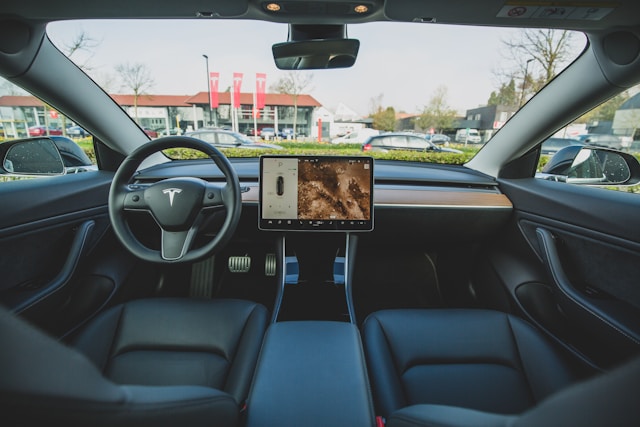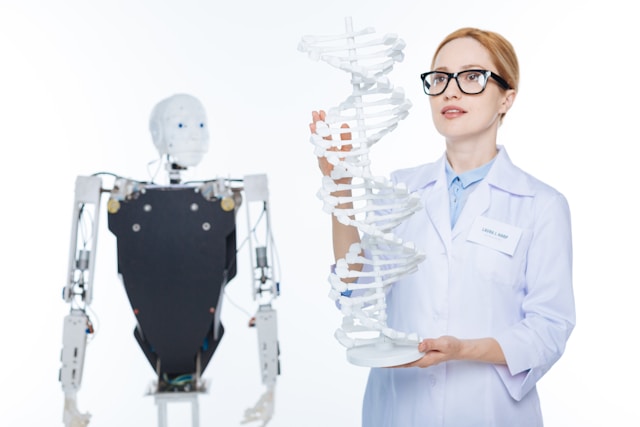Artificial Intelligence (AI) is no longer just a buzzword of the tech elite. It has transcended from its futuristic fictional roots into an everyday reality. AI already permeates many aspects of daily life, with increasing dependence and trust from consumers and users. This deep-rooted integration is paving the way for a future where AI will not only be ubiquitous but also largely invisible, working behind the scenes to improve the quality of our lives.
In this comprehensive exploration, we highlight the present and future role of AI in everyday life, dissecting its implications and the changes it will bring forth. We aim to demystify AI, offer insights into its potential transformations, and discuss how we, as individuals, can adapt to this new landscape.
Understanding AI: More Than Just Machines
First and foremost, it’s crucial to understand what we mean by AI. It’s not just robots or self-aware systems; AI encompasses a broad field of computer science focused on creating intelligent machines capable of simulating aspects of human intelligence. This simulation ranges from learning and problem-solving to understanding and responding to natural language.
AI’s current impact on everyday life is vast. From the moment we wake up to the time we go to sleep, AI technologies are subtly—and sometimes, not so subtly—affecting how we interact with the world around us.
AI Everywhere: Current Daily Interactions
AI’s seamless integration into our daily lives is exemplified by the devices we interact with. For instance, the smartphones we glance at every few minutes are AI powerhouses, tracking our habits and predicting our needs. They might even help generate parts of this text in the form of autocomplete and voice-to-text functionalities.
AI’s presence extends to our homes as well. Smart thermostats that learn our climate preferences, virtual assistants that schedule our days, and even robotic vacuum cleaners that map and clean our homes are now commonplace. These are just a few examples of how AI is transforming the convenience and efficiency of our living spaces.
This level of AI in daily life is just the beginning. Future innovations promise even more interwoven and intelligent ecosystems that will proactively cater to our individual needs.
The AI of Tomorrow: What to Expect
The development of AI is advancing at a rapid pace, promising to revolutionize the way we function within our communities and societies. Here, we forecast some of the significant AI trends and their potential impact on everyday life:
Personalized Healthcare
AI’s foray into the healthcare realm will result in a more personalized and predictive approach to medicine. Wearable devices could constantly monitor our health, providing instant alerts to potential problems. Diagnostic tools powered by AI could also assist doctors in identifying illnesses and recommending the most effective treatments.
Autonomous Transportation

Self-driving cars and automated systems for public transportation will not only reduce accidents but also fundamentally change the way we commute. With AI at the helm, we’d enjoy more productive travel times and potentially solve urban congestion issues.
Smart Cities
The evolution of AI will lead to smarter city infrastructures, with systems that optimize traffic flow, predict and mitigate environmental risks, and manage energy consumption. We could see reduced waste, carbon footprints, and, most importantly, a higher quality of life.
Challenges and Opportunities
AI’s integration into everyday life is not without its hurdles. Ensuring that AI develops responsibly and ethically is a pressing concern. Its implications on employment, data privacy, and biases within systems are serious matters that require ongoing dialogue and regulation.
Yet, AI also presents an array of opportunities. It has the potential to break down barriers, democratize services, and enhance our creative and cognitive abilities. By leveraging these opportunities, we can create a more inclusive, innovative, and efficient society.
Real-World Applications and Lessons

To illustrate the potential and the challenges of AI in everyday life, we examine several case studies that highlight successful applications and the lessons learned from their implementation. From AI in education to AI’s role in transforming global supply chains, these examples shed light on the diversity of AI’s reach and its real-world implications.
Read more about traffic bots.
Preparing for an AI-Integrated Society
The march of AI into everyday life is inevitable, and the need for preparedness is critical. We discuss how individuals can equip themselves for the coming changes, whether it’s through education and upskilling, understanding AI’s limitations, or advocating for responsible AI development and use.
Join the Conversation and Share Your Thoughts
AI’s future is not set in stone, and the choices we make now will shape the world we live in. We encourage you to share your thoughts, experiences, and questions about AI’s impact on daily life. Engage with us in the comments section, on social media, or through any other platform you find convenient.
Looking Ahead
AI’s future in everyday life is a tapestry of challenges, opportunities, and unknowns. By staying informed and engaging with the topic, we can all play a part in crafting a future where technology serves humanity at its best. The AI revolution is already here, but its true potential—and the true essence of an AI-integrated society—remains on the horizon, waiting to be defined by the actions and choices we take today.
